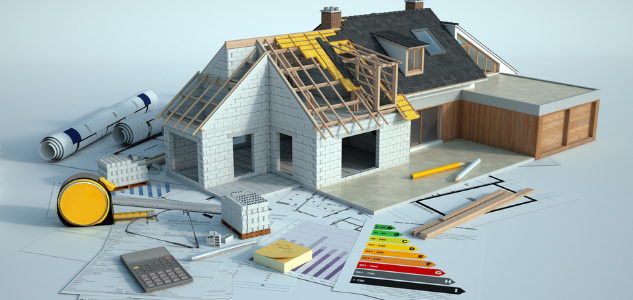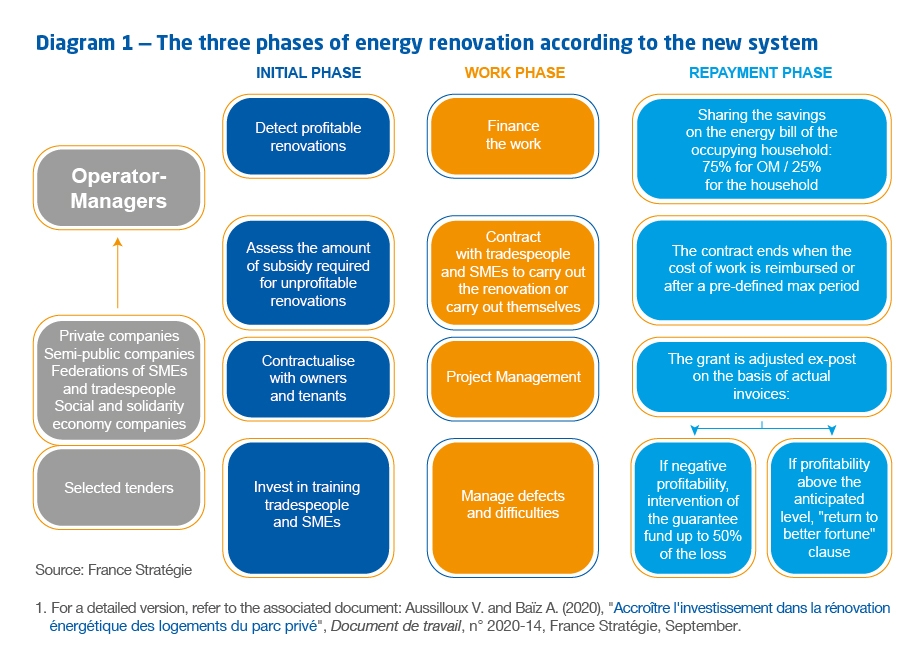
A public guarantee would partially cover the operator’s loss when the operations turn not profitable. Households would not need to advance any costs, nor bear any risk related to defects and project management. The operators benefiting from the public guarantee would be selected by public tendering and a quality label would help increase visibility and trust among the general public.
By strengthening the current third-party financing and energy performance contract schemes, the scheme would make it possible to target retrofits o ering the best self-financing rate for an ambitious level of renovation. It would also optimise public aid by limiting it to the strictly necessary, largely thanks to a financial recovery clause. €7.5 billion of additional activity could be generated each year, i.e. 0.3 GDP points and 100,000 new jobs. At full capacity, the scheme would help reduce the country's CO2 emissions by 2.4%. The scheme could be adapted to public or corporate buildings and deployed in territories or districts in the form of "concerted renovation zones", in coordination with local authorities. Good incentives would guarantee simple and inexpensive administrative management of the scheme.
Sustained low energy prices will continue to hamper the implementation of renovation work. In order to compensate for the resulting drop in profitability, clauses may be included that provide for a longer amortisation period and a lower level of energy savings passed on to households. In all cases, fuel oil should be excluded from post-renovation energy sources, in line with the objective of carbon neutrality by 2050.

Read the full document in french
[1] For a detailed version, refer to the associated document: Aussilloux V. and Baïz A. (2020), "Accroître l'investissement dans la rénovation énergétique des logements du parc privé", Document de travail, n° 2020-14, France Stratégie, September.






